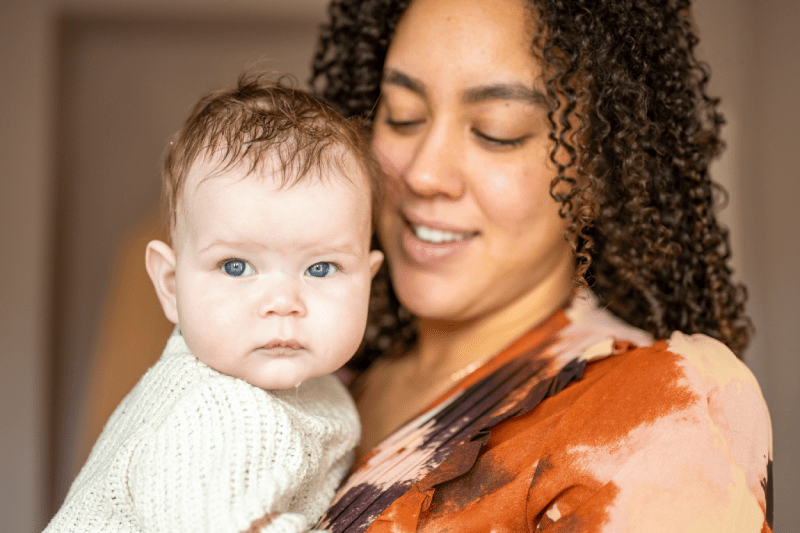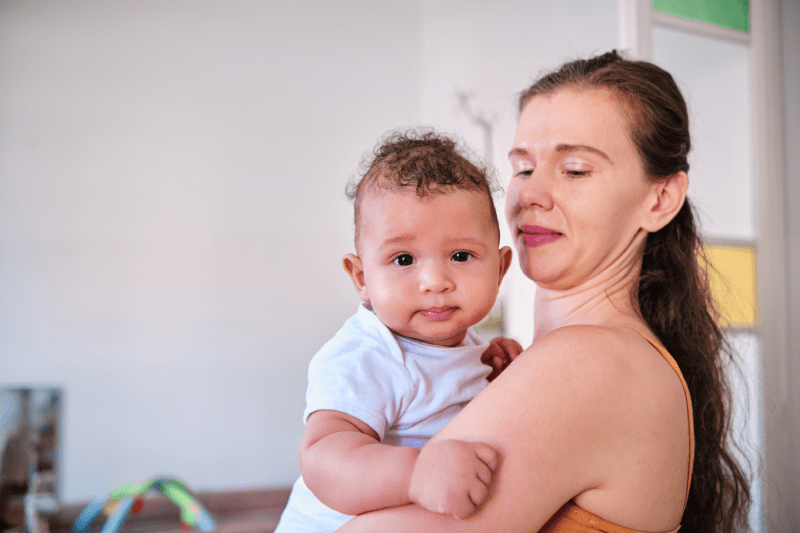This guide answers the most frequently asked questions regarding the treatment processes, costs, and logistical details in Thailand and Cyprus for couples considering embryo freezing as an option on their journey to parenthood. Remember that contacting Cure Holiday for a personalized treatment plan and up-to-date pricing information will be the most accurate step.
What Is The Embryo Freezing Procedure And How Is It Performed?
The embryo freezing procedure involves the process of safely storing healthy embryos obtained during in vitro fertilization (IVF) treatment in a special protective liquid (cryoprotectant) at the temperature of liquid nitrogen (−196∘C) for future use. This method is typically performed using the rapid freezing technique called vitrification.
This process prevents the formation of intracellular ice crystals to maximize the embryos’ survival rate. This allows couples to attempt a transfer again without needing additional medication and egg retrieval cycles, even if the first attempt at pregnancy is unsuccessful. To best understand your treatment options and procedure details, please consult with Cure Holiday.
How Much Are Embryo Freezing Prices Generally In Thailand?
Thailand is known for offering more affordable yet high-standard healthcare services compared to Western countries, and this is reflected in embryo freezing prices. Prices in the country can vary significantly based on the prestige of the chosen center, the number of embryos to be frozen, and the requested storage period.
The fee for a single freezing cycle and annual storage is usually calculated separately from the total cost of a comprehensive IVF cycle. Cure Holiday can assist you in creating a definitive budget and comparing current price quotes from different centers in Thailand. You should remember that prices can constantly change depending on currency exchange rates.
How Do Embryo Freezing Costs In Cyprus Differ Compared To Thailand?
Embryo freezing costs in Cyprus may differ slightly from the pricing structure in Thailand and are generally closer to European Union healthcare standards. Cyprus offers advantages, especially for patients from Europe, such such as shorter travel time and similar cultural proximity.
Prices may initially seem slightly higher than in Thailand, but the total cost (including travel and accommodation) can be balanced according to personal preferences. Cost differences are often related to the quality of laboratory services and legal storage periods. To determine the most suitable package for you in both destinations, you can request a comprehensive comparison by contacting Cure Holiday.
Why Is Thailand A Popular Choice For In Vitro Fertilization Treatments?
Thailand is a prominent destination in medical tourism due to its advanced medical infrastructure, modern centers with international accreditations, and experienced specialist staff. The significantly low treatment costs compared to Western standards, without compromising superior service quality, form the basis of this popularity.
Furthermore, the country’s cultural richness, warm people, and tourist attractions make the treatment process less stressful and more enjoyable. Many centers offer services specifically designed for the needs of foreign patients. Cure Holiday can organize the best treatment options in Thailand for you and facilitate your travel plan.
What Are The Advantages Offered By Cyprus IVF Centers?
Cyprus is attractive, especially for patients from Europe and Turkey, due to its geographical proximity and the wide range of legal options it offers. Centers in Cyprus have a high reputation for using advanced technology and implementing personalized, flexible treatment protocols. Additionally, waiting times at these centers are usually short, allowing patients to begin treatment quickly.
Cyprus may offer some advantages in terms of legal age limits and permitted transfer numbers for IVF and embryo freezing treatment. The comfortable accommodation and cultural ease provided during the treatment period are also reasons for preference. You can benefit from the guidance of Cure Holiday to examine these advantages in detail.
What Are The Preparation Stages For The Embryo Freezing Process?
Preparation for the embryo freezing process typically begins with the stimulation of the woman’s ovaries. During this stage, hormone tests and ultrasound examinations are performed to assess the patient’s fertility potential. As part of the treatment, medications are used at specific intervals to increase egg production. When the eggs are mature, the egg retrieval procedure is carried out, and embryos are created through fertilization in the laboratory. The quality of the embryos is monitored, and those suitable for freezing are determined. Utilizing the services of Cure Holiday for proper guidance and appointment tracking during this comprehensive preparation process ensures a smooth management of the procedure.

How Long Can Frozen Embryos Be Stored?
Theoretically, frozen embryos can be stored indefinitely because metabolic activity completely ceases at the temperature of liquid nitrogen, and biological degradation does not occur. However, in both countries (Thailand and Cyprus), there are legal storage periods for embryos. These periods may vary according to the country’s legislation and the center’s policies, usually setting the initial storage duration between 5 to 10 years. At the end of the legal period, couples must decide whether to continue storage, donate the embryos, or dispose of them. You can obtain information from Cure Holiday experts to learn about your personal legal rights and obligations.
Are The Embryo Freezing Techniques Used In These Countries Reliable?
Leading IVF centers in Thailand and Cyprus use the vitrification technique for embryo freezing, which is globally accepted and offers the highest success rates. Vitrification means ultra-rapid freezing and minimizes crystal formation within the embryo cells, virtually eliminating the risk of cell damage after thawing. This technology is highly reliable for preserving embryo viability and complies with international standards. Checking the technical competence and laboratory quality of the centers is vital for treatment success. You can verify the audit and accreditation information of these centers through Cure Holiday.
What Exactly Does The Vitrification Method Mean?
Vitrification is a glassification technique used to freeze embryos. In this method, embryos are rapidly treated with high concentrations of cryoprotectant solutions and instantly plunged directly into liquid nitrogen at −196∘C. This sudden cooling prevents the crystallization of water inside the cells; the water transitions into a solid, glass-like state without crystallizing. Compared to the standard slow-freezing method, vitrification offers post-thaw survival rates over 90%, making it an indispensable part of modern IVF treatments. Advanced centers in Thailand and Cyprus successfully implement this technology.
What Factors Affect The Success Rate Of Embryo Freezing?
The success of embryo freezing—meaning the embryo’s survival after thawing and the establishment of pregnancy after transfer—depends on various factors. The most critical factors are the woman’s age (as it determines egg quality), the embryo’s quality (developmental stage and morphology at the time of freezing), and the freezing/thawing technique applied. Furthermore, the health of the uterine environment where the embryo will be transferred and the cycle in which the transfer is performed are also important. Since success rates can vary from center to center, consulting with Cure Holiday to learn the current statistics of the centers you plan to use will support your decision-making process.
How Do Legal Regulations In Cyprus Differ From Thailand?
Legal regulations in Cyprus and Thailand can differ significantly, particularly regarding donor use, sex selection, and the maximum transfer age. For example, practices that are illegal in some countries may be permitted with certain restrictions in Cyprus, while different legislation may apply in Thailand. It is essential for patients to fully understand the legal framework under which they are operating and their rights within that framework before commencing treatment. To determine which country’s legal structure is more suitable for your needs and ethical expectations, you can obtain up-to-date legal information through Cure Holiday.
What Is The Estimated Cost Of Accommodation And Travel Expenses In Thailand?
The total cost of a treatment trip to Thailand includes airfare, visa (if required), accommodation, and daily living expenses. Airfares vary significantly depending on the travel season and how early they are booked. Accommodation options in major cities with treatment centers, such as Bangkok or Phuket, range from luxury hotels to affordable serviced apartments. The general cost of living is low, but the total expenditure will depend on the length of your stay. Cure Holiday can offer you special packages for accommodation and travel arrangements that suit your treatment duration and budget, lightening the entire logistical load.
What Additional Expenses Might Arise During A Trip To Cyprus?
When planning treatment in Cyprus, you need to budget for accommodation, food and drink, and local transportation costs, in addition to the direct treatment fee. Since Cyprus is a destination close to Europe, airfare costs may be more affordable compared to Thailand depending on your region. However, accommodation and daily expenses will change depending on the length of the treatment period. Additional tests or unexpected medication needs during treatment should also be included in the budget. Furthermore, the cost of the time allocated for rest before and after treatment must be taken into account. You can avoid surprise costs by making the most transparent plan for all these additional expenses with Cure Holiday.
What Criteria Should Be Considered When Choosing An IVF Center?
The most critical criteria to consider when choosing an IVF center are the center’s general success rates (especially for frozen embryo transfer), the technological equipment of its laboratory (vitrification competence), the experience of the specialist staff, and whether it holds international accreditations. Furthermore, the suitability of the center’s communication language and the quality of support services for foreign patients are also important. Transparent pricing policy and the ability to clearly convey the treatment process to the patient also build trust. Cure Holiday meticulously selects and presents reliable and high-standard centers that meet these criteria for you.
Are Interpretation Services Available For Foreign Patients?
Since both Thailand and Cyprus are leading centers in international health tourism, professional interpretation services are provided in most large IVF centers for foreign patients. These services are vital for ensuring accurate and complete communication between the doctor and the patient, preventing misunderstandings during the treatment process. Interpreters can usually provide services in various languages, primarily English. It is important to inquire about language support options at the center before starting treatment. Cure Holiday offers comprehensive service packages, including language support within treatment coordination, solving this need from the start.
What Is The Most Suitable Time For Embryo Transfer In Thailand?
The “most suitable time” for embryo transfer in Thailand is when the woman’s uterine lining (endometrium), where the frozen embryo transfer will take place, reaches the optimal thickness and receptivity. This condition is usually controlled with hormone medications (estrogen and progesterone) administered to the woman and determined through ultrasound monitoring. This can be done in a natural cycle or a controlled cycle. The timing of the transfer is also planned according to the stage at which the embryo was frozen (e.g., Day 5 blastocyst). Cure Holiday coordinators organize all these hormonal and cyclical follow-ups, ensuring your transfer appointment in Thailand is perfectly timed.
How Long Does The Frozen Embryo Transfer Take And Is It A Painful Procedure?
Frozen embryo transfer is a procedure that is quite short and generally painless. The process is performed in the gynecological examination position, under ultrasound guidance, with a thin catheter gently placing the embryos into the uterus. This procedure usually takes between 15 and 30 minutes and does not require any anesthesia. Most patients feel only slight pressure during the transfer. Patients are advised to rest briefly after the procedure and can immediately return to their daily activities. Cure Holiday arranges all the logistical details for you to ensure the transfer process is comfortable and stress-free.
What Are The Important Points To Consider After The Transfer?
The most important points patients should consider after embryo transfer are regularly using the medications prescribed by the doctor (usually progesterone support), avoiding heavy lifting and strenuous exercise, and staying away from stress as much as possible. It is also recommended to avoid activities that can excessively heat the uterine area, such as overly hot baths, saunas, or Turkish baths. A pregnancy test (beta HCG) is performed approximately 10-14 days after the transfer. It is important to think positively and strictly adhere to the doctor’s recommendations during this two-week period. Cure Holiday consultants are always ready to provide support regarding the post-treatment process and care instructions.

Are Medication Costs Included In The Total Price In Thailand And Cyprus?
When it comes to package prices for embryo freezing and IVF treatment, whether medication costs are included in the package is an important detail that varies from center to center and according to the country’s policy. Some centers offer “all-inclusive” packages, while others may require the patient to purchase the hormone medications needed for ovarian stimulation separately. The cost of medications can constitute a significant additional burden depending on the dosages and brands used. Therefore, it is essential to ensure that medication costs are clearly specified in the quote you receive. You can review the most transparent cost breakdowns with Cure Holiday.
Does Insurance Cover The Cost Of These Treatments?
Standard health insurance policies in Turkey or abroad generally do not cover elective embryo freezing procedures or infertility treatment (IVF). However, some special and comprehensive health insurance plans may cover a portion of these treatments under certain conditions or up to a specific age. Travel health insurance can be purchased for treatments abroad, but this usually covers emergency health situations, not the treatment itself. To clarify your insurance coverage and make the best financial planning to cover treatment costs, you can consult with Cure Holiday for up-to-date information.
What Is Covered By The Starting Package Prices In The Two Countries?
Starting IVF package prices in Thailand and Cyprus, although varying by center, typically cover standard services including doctor consultations, ovarian stimulation monitoring, egg retrieval procedure, fertilization (ICSI), embryo culture, and freezing (vitrification). The first year’s storage fee is usually included in the price, but an annual storage fee is charged for subsequent years. Things to remember: medications, additional genetic tests (PGT), and embryo transfer (FET) may be charged separately. You can clarify the scope by requesting a complete list of all details included in the package from Cure Holiday.
How Is The Quality Of Frozen Embryos Assessed?
The quality of embryos is carefully assessed by embryologists before the freezing procedure. This assessment is based on criteria such as the embryo’s cell division rate, the morphology (shape and organization) of the cells, and the level of fragmentation. Blastosysts, especially Day 5 embryos, are considered ideal for freezing because of their high implantation potential. Freezing high-quality embryos significantly increases the chance of viability after thawing and pregnancy after transfer. Cure Holiday consultants will assist you in obtaining information about the center’s embryo quality standards before treatment.
Is There A Price Difference If Re-Freezing Of Embryos Is Required?
If excess embryos are produced after the initial egg retrieval cycle and couples wish to freeze them again at a later date, this is generally considered a separate cost item. Pricing is usually based on the re-freezing procedure or the number of straws (small tubes) frozen. A more favorable price might be offered compared to the initial freezing package, but this is at the discretion of the centers. This detail is important for accurately calculating the total cost before starting IVF treatment. You can obtain cost estimates covering all possible scenarios by speaking with Cure Holiday.
What Is The Chance Of Success For Women In Higher Age Groups?
The chance of successful pregnancy after embryo freezing and transfer for women in higher age groups (especially 38 years and older) may naturally be lower compared to younger patients. The main reason for this is the decrease in the number of eggs and the increased risk of chromosomal abnormalities as age advances. However, what is important is the quality and genetic structure of the embryo. Even at an advanced age, the chance of success is quite high with the transfer of an embryo that is genetically confirmed as normal (after PGT). This emphasizes the importance of the center’s PGT and laboratory quality. You can contact Cure Holiday to evaluate your personal success potential.
Is Genetic Screening Performed Before Embryo Freezing?
Preimplantation Genetic Testing (PGT) before embryo freezing is not a mandatory step but is frequently recommended, especially for couples of advanced age, those with recurrent failed attempts, or those with known genetic risks. PGT allows the embryos to be examined for chromosomal abnormalities before they are transferred to the uterus. Through this screening, only genetically healthy embryos are frozen, which increases the pregnancy and live birth rates per transfer. The decision on whether to perform this test is made by the center’s specialists based on your personal medical history. Cure Holiday can connect you with centers that offer PGT services.
How Much Does The PGT Procedure Affect The Costs?
The Preimplantation Genetic Testing (PGT) procedure is an additional step that adds a significant burden to the overall cost of embryo freezing treatment because it requires specialized laboratory work and advanced technology. The cost of PGT is usually priced based on the number of embryos to be examined. A collective fee is often charged for a group of embryos, not just a single one. Although it increases the overall success of the treatment, the high cost makes it essential to clarify this detail during the budgeting phase. You can contact Cure Holiday to learn about PGT fees in Thailand and Cyprus and whether these fees are included in the package.
Do Hospitals In Thailand Have International Accreditations?
Since Thailand is a global leader in medical tourism, many of the country’s leading IVF centers and hospitals have internationally recognized accreditations. The most common international accreditations include certificates from organizations that set global health standards, such as Joint Commission International (JCI). These accreditations indicate that the center complies with international standards for patient safety, quality control, and clinical excellence. Checking the accreditation status of the center you are considering for treatment will give you confidence in your decision-making process. Cure Holiday prioritizes working only with accredited centers like JCI and presents this information to you transparently.
What Technological Equipment Do Centers In Cyprus Use?
Modern IVF centers in Cyprus generally use laboratory equipment with the latest technology, complying with European standards. This equipment includes Time-Lapse Incubators (capable of continuously monitoring embryo development), high-resolution micromanipulation systems (for ICSI and biopsy), and vitrification systems. These technological capabilities ensure that embryos are cultured, frozen, and thawed under the best possible conditions. The quality of the laboratory and the equipment used directly affect a center’s success rate. Cure Holiday can provide you with all the information to learn about the technological details and infrastructure of the centers in Cyprus.
How Should Travel Flexibility And Procedure Time Be Planned?
The embryo freezing or frozen embryo transfer process usually requires a certain period of flexibility due to ovarian stimulation and monitoring. You may need to stay in Thailand or Cyprus for about 10-14 days for the egg retrieval procedure, while the duration may be shorter (approximately 5-7 days) for only a frozen embryo transfer. It is important to keep your travel plans flexible according to the exact start dates of the treatment and the center’s protocol. Adjusting your accommodation and flights according to the treatment schedule ensures the entire process runs smoothly. Cure Holiday offers expert coordination to help plan your treatment and travel schedule in perfect harmony.
Are There Refund Or Repeat Treatment Options If The Treatment Fails?
In most IVF centers in Thailand and Cyprus, there is no standard policy offering a refund guarantee in case of treatment failure, as the outcome is largely dependent on biological factors. However, some centers may offer packages, known as “Shared Risk Programs,” that involve multiple attempts. In these packages, a partial refund or a discounted repeat treatment option may be offered if pregnancy is not achieved after a certain number of attempts. It is beneficial to inquire in detail whether such a guarantee or repeat treatment policy exists before commencing treatment. You can clarify these policies with Cure Holiday.

What Are The Potential Risks Of The Embryo Freezing Procedure?
The embryo freezing procedure itself is low-risk for the embryos, but the IVF process carries some potential risks. These risks include Ovarian Hyperstimulation Syndrome (OHSS), which is rarely seen during ovarian stimulation, and the risk of possible light bleeding or infection during the egg retrieval procedure. However, these risks are minimal and managed with careful monitoring in modern medical centers. The risk of embryo survival failure after vitrification during the embryo freezing procedure is also low but present. You can consult with specialists through Cure Holiday for risk management and detailed medical information.
What Cultural Differences Might Be Encountered During Treatment In Thailand?
Cultural differences that may be encountered when receiving medical treatment in Thailand generally revolve around communication style, service philosophy, and etiquette. Thai culture values respect and calmness; this may mean that healthcare personnel adopt a calmer, more polite, and formal approach. Due to respect for the hierarchical structure, the culture of challenging doctors’ decisions is less common. It is important to learn how much the foreign patient departments pay attention to cultural sensitivities to ensure your treatment process is as comfortable as possible. Cure Holiday provides language and coordination support to minimize cultural barriers.
Is A Visa Required For Embryo Freezing Treatment In Cyprus?
Cyprus may have different visa requirements depending on the region you travel to (North Cyprus or South Cyprus). Turkish citizens can usually travel to North Cyprus without a visa, while a Schengen or National Visa may be required for South Cyprus (EU region). It is important to check the current visa requirements based on which country or region you will be traveling to and the type of your passport. Having accurate information about visa and travel documents is critical to prevent disruption to your treatment process. Cure Holiday provides detailed and up-to-date information support on travel and visa procedures best suited to your treatment plan.
What Are The Tests And Analyses Required Before Treatment?
Before starting embryo freezing treatment, a comprehensive set of tests and analyses is mandatory for both the woman and the man. For the woman, hormone tests (FSH, LH, E2, AMH), infection screenings (Hepatitis B/C, HIV), complete blood count, and an ultrasound examination showing the uterine structure are requested. For the man, sperm analysis and necessary infection screenings are required. These tests provide the fundamental data to determine suitability for treatment and create a personalized stimulation protocol. Some of these tests can be done in your own country, while some may be repeated at the treatment center. You can receive support from Cure Holiday for the complete follow-up of the test list.
How Can Cure Holiday Help And What Services Does It Offer?
Cure Holiday provides a comprehensive intermediary and consultation service for couples considering embryo freezing treatment in Thailand and Cyprus. The main services offered include: comparison of reliable centers in both countries, obtaining up-to-date price quotes, creating personalized treatment packages, organizing all travel arrangements including accommodation and flights, and providing 24/7 local support and interpretation services throughout the treatment process. Cure Holiday takes all the logistical and bureaucratic burden off you, allowing you to focus solely on the treatment. Contact them immediately to have a reliable team of experts by your side during this critical process.



